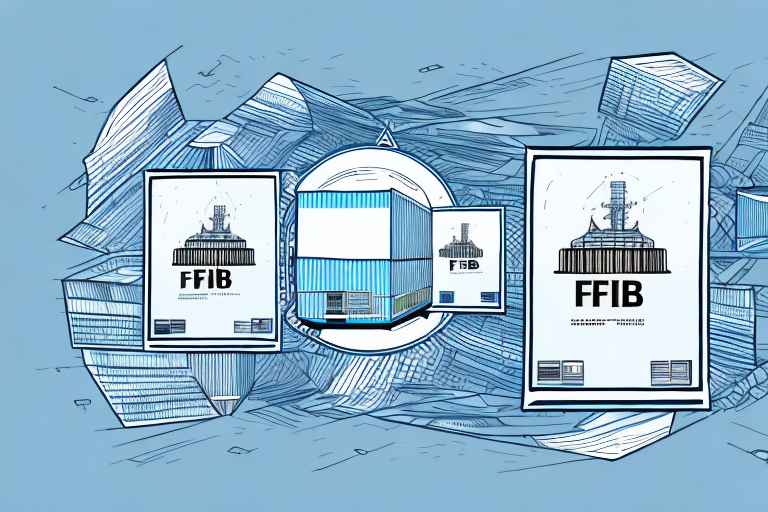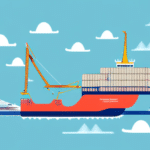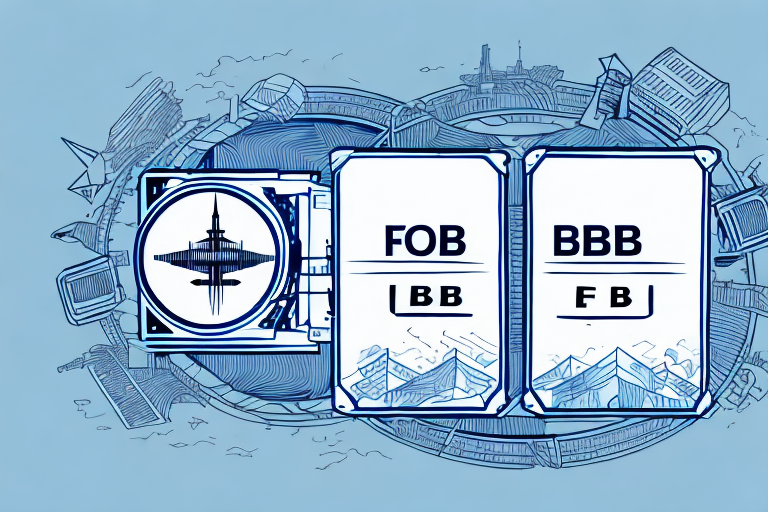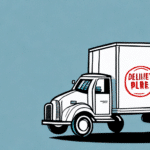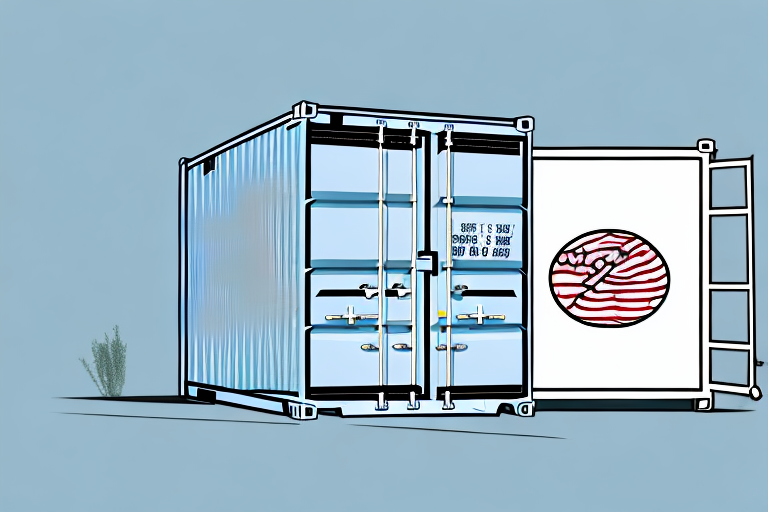Comparing FOB Destination vs Origin: What You Need to Know
When shipping goods globally, understanding the intricacies of FOB (Free on Board) Destination and FOB Origin is crucial. These terms significantly impact shipping costs, insurance, and legal liabilities. Making an informed choice between these options can enhance your supply chain efficiency and reduce unforeseen expenses. This comprehensive guide delves into the fundamentals of FOB shipping, contrasts FOB Destination and FOB Origin, explores their advantages and disadvantages, examines legal implications, and provides expert insights to help you determine the best option for your business.
Understanding the Basics of FOB Shipping
FOB is a pivotal shipping term that delineates who bears the risk and costs during the transportation of goods from the seller to the buyer. Specifically, it defines the point at which ownership and responsibility for the goods transfer from the seller to the buyer. This transfer point can be either the origin (seller's location) or the destination (buyer's location), depending on the FOB type chosen. Commonly, FOB is followed by the name of a port, such as FOB Shanghai or FOB Los Angeles Port.
Importantly, FOB terms typically do not include insurance coverage for the transported goods. Buyers are recommended to purchase additional insurance to safeguard their shipments during transit. Additionally, FOB terms can vary across different countries and industries, making it essential to clarify specific terms and responsibilities with the seller before finalizing any agreements.
Differences Between FOB Destination and FOB Origin
FOB Destination
Under FOB Destination terms, the seller assumes all risks and costs associated with transporting the goods until they reach the buyer’s destination port. This includes loading the goods, arranging transportation, and covering insurance and shipping expenses. Once the goods arrive at the buyer’s destination port, ownership and responsibility transfer to the buyer, who then handles unloading and transportation to their warehouse or facility.
FOB Origin
Conversely, FOB Origin terms mean that the buyer assumes ownership and responsibility for the goods as soon as they are loaded onto the transportation vessel at the origin port. The buyer is responsible for all subsequent costs and risks, including transportation, insurance, and handling, until the goods reach the destination port. The seller's responsibilities are limited to loading the goods and providing necessary documentation and licenses.
The choice between FOB Destination and FOB Origin can have significant implications:
- Control Over Shipment: FOB Destination offers sellers more control over the shipping process, while FOB Origin gives buyers greater control once the goods are loaded.
- Cost Implications: FOB Destination may result in higher overall costs for sellers, whereas FOB Origin can lead to higher costs for buyers due to their increased responsibilities.
- Risk Management: Buyers under FOB Origin bear more risk during transit, while under FOB Destination, sellers retain risk until delivery.
Advantages and Disadvantages of FOB Destination and FOB Origin
Advantages of FOB Destination
- Reduced Risk for Buyers: Buyers are protected from losses or damages during transit, as the seller retains responsibility until delivery.
- Simplified Logistics: Sellers handle the bulk of logistics, benefiting buyers who lack extensive shipping experience.
Disadvantages of FOB Destination
- Higher Costs for Sellers: Sellers incur additional costs for transportation, insurance, and handling.
- Potential Delays: Sellers manage the shipping process, which may lead to delays beyond the buyer’s control.
Advantages of FOB Origin
- Cost Efficiency for Sellers: Sellers can minimize shipping costs by transferring responsibilities to buyers early in the process.
- Buyer Control: Buyers have greater control over transportation and can potentially negotiate better shipping rates.
Disadvantages of FOB Origin
- Increased Risk for Buyers: Buyers bear responsibility for goods during transit, raising the risk of loss or damage.
- Complex Logistics: Buyers must manage the shipping process, which can be challenging without adequate expertise.
Legal Implications of Choosing Between FOB Destination and Origin
The choice between FOB Destination and FOB Origin can significantly influence legal responsibilities:
- Compliance with Regulations: Under FOB Destination, sellers must comply with export regulations until goods reach the destination port. Under FOB Origin, buyers are responsible for compliance immediately after goods are loaded.
- Liability: Sellers may face liability for damages or losses during transit under FOB Destination, whereas under FOB Origin, liability transfers to buyers once goods are loaded.
- Dispute Resolution: Clearly defined FOB terms in contracts are essential to prevent disputes over responsibilities and liabilities.
Impact of FOB Destination and Origin on Shipping Costs and Insurance
Shipping Costs
Shipping costs vary significantly between FOB Destination and FOB Origin:
- FOB Destination: Sellers cover the cost of transportation to the destination port, potentially resulting in higher costs for sellers but simplified budgeting for buyers.
- FOB Origin: Buyers are responsible for all shipping costs from the origin port, which can lead to higher expenses but allows buyers to leverage their shipping arrangements.
Freight Insurance
Freight insurance responsibilities differ based on FOB terms:
- FOB Destination: Sellers must insure the goods until they reach the buyer's destination port, reducing the buyer's need for additional insurance during transit.
- FOB Origin: Buyers are responsible for insuring the goods as soon as they are loaded, ensuring comprehensive coverage during the entire transit process.
Key Considerations Before Choosing FOB Destination or Origin
When deciding between FOB Destination and FOB Origin, consider the following factors:
- Nature and Value of Goods: High-value or fragile goods may benefit from the seller's control under FOB Destination.
- Buyer’s Shipping Expertise: Buyers with robust logistics capabilities might prefer FOB Origin to optimize shipping costs.
- Budget Constraints: Assess who can better absorb shipping costs and insurance expenses based on financial resources.
- Risk Tolerance: Determine the level of risk your business is willing to take during the shipping process.
- Regulatory Environment: Understand the export and import regulations of the origin and destination countries.
Expert Opinions on Choosing FOB Destination vs Origin
Industry experts weigh in on the FOB decision:
Marco Givae, CEO of Global Logistics Solutions: “For small to medium-sized businesses with limited shipping experience, FOB Destination offers a safer and more manageable option. It allows buyers to rely on the seller's expertise in handling logistics. Conversely, larger businesses with established logistics networks may find FOB Origin more cost-effective and flexible.”
Linda Chen, Supply Chain Analyst: “Understanding the total cost of ownership is key. Buyers must consider not just shipping fees but also potential risks and the cost of insurance when choosing between FOB Destination and Origin.”
Future Trends in FOB Destination and Origin
As global trade continues to evolve, the application of FOB Destination and FOB Origin is expected to adapt:
- Technological Advancements: Enhanced tracking and logistics technologies may influence how responsibilities are managed under different FOB terms.
- Customization of Shipping Terms: Businesses may seek more tailored shipping agreements that better align with their specific needs and risk profiles.
- Sustainability Considerations: Increasing focus on sustainable shipping practices may affect decisions around FOB terms, as companies strive to minimize their carbon footprint.
Top Mistakes to Avoid When Choosing FOB Destination or Origin
To ensure a smooth shipping process, avoid these common pitfalls:
- Ignoring the Nature of Goods: Failing to consider how the type of goods affects shipping responsibilities and risks.
- Overlooking Insurance Needs: Not securing adequate insurance coverage based on FOB terms.
- Poor Communication: Lacking clear discussions with freight forwarders, carriers, and insurers about responsibilities and expectations.
- Budget Miscalculations: Underestimating the total costs involved in either FOB Destination or Origin.
Conclusion: Balancing Cost, Risk, and Convenience in Shipping
Choosing between FOB Destination and FOB Origin is a strategic decision that affects your business’s shipping efficiency, cost management, and risk exposure. By thoroughly evaluating your business needs, understanding the implications of each FOB term, and consulting with logistics experts, you can make an informed choice that balances cost, risk, and convenience. Clear contractual agreements and robust communication with all parties involved further ensure a seamless shipping experience tailored to your business objectives.













